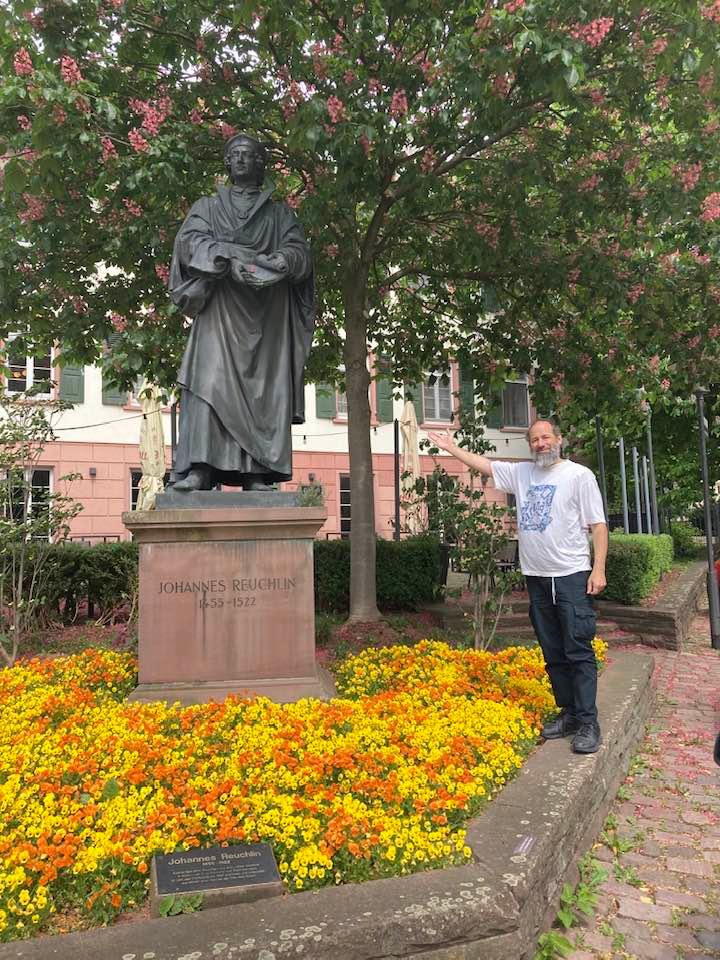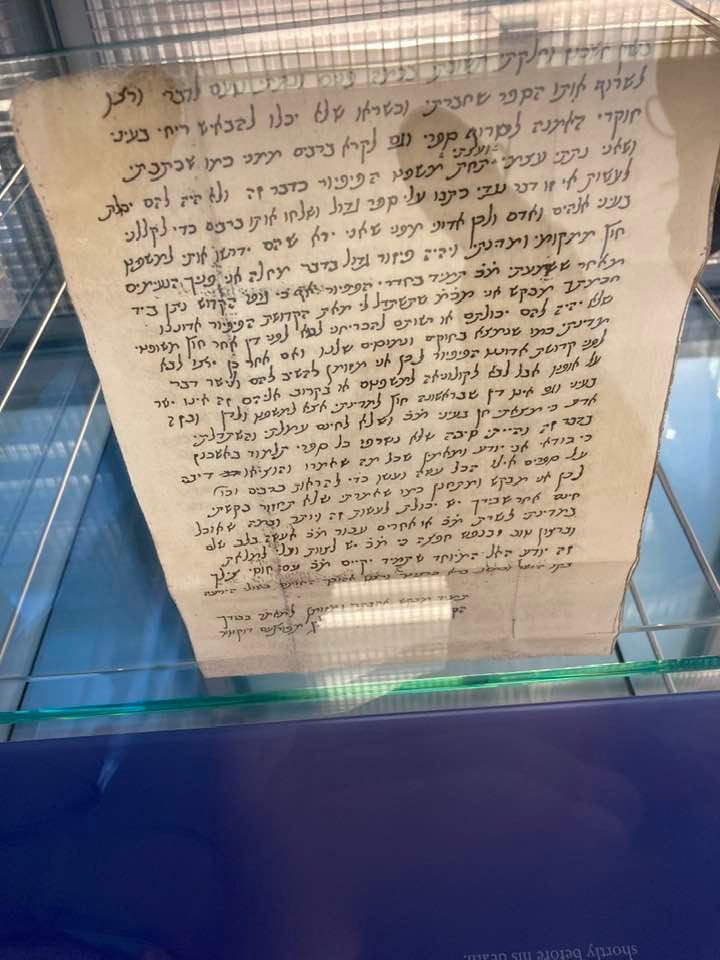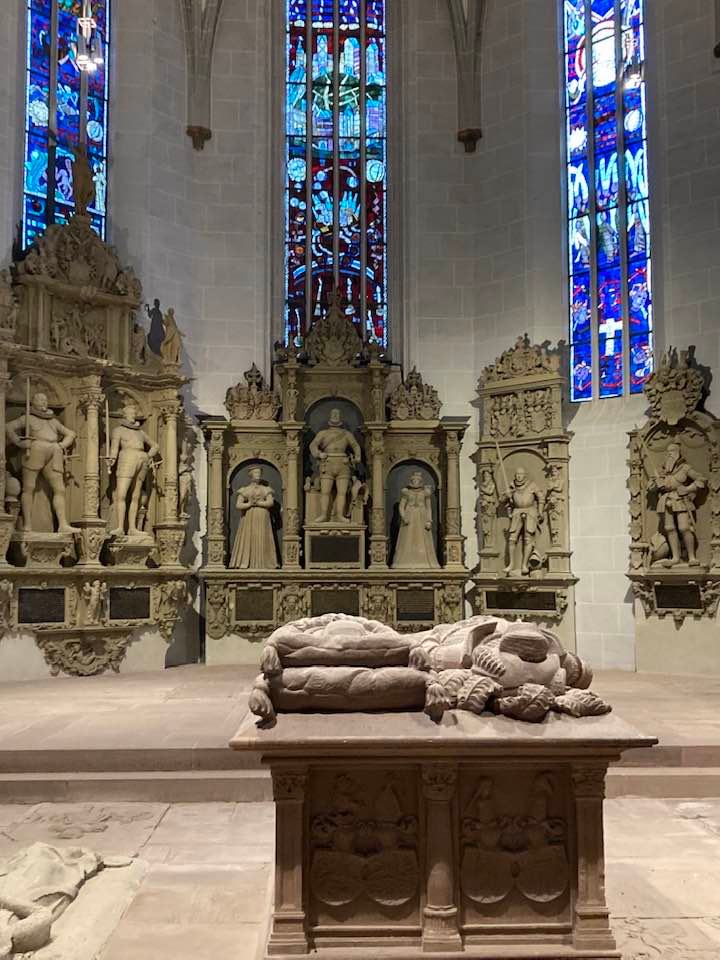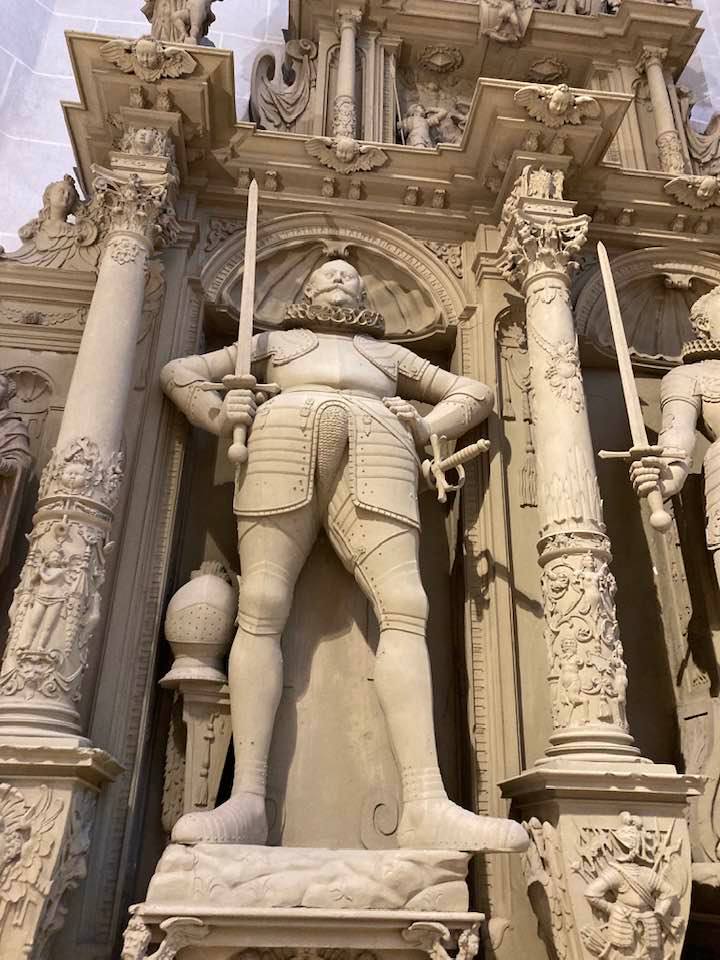- Home
- Krav Maga Blog
- Krav Instructors
- Train in Israel
- Tour Train Israel
- Krav Shop
- DVD
- Kickboxing
- IKI Near Me
- Seminars
- IKI Membership
- On-Line Training
- Krav Maga Training
- Testimonials
- History Krav Maga
- Instructors Page
- Past Blogs
- Spanish
- Italian
- Certification
- Contact
- Holland Seminar
- Vienna Seminar
- Poland Seminar
- Italy Seminar
- Belt Requirements
statues or words
BY MOSHE KATZ
CEO
ISRAELI KRAV INTERNATIONAL
May 17, 2022, Pforzheim, Germany
The year was 1455, the place was called the Holy Roman Empire, but there was nothing holy at all about this empire. How can you call yourself holy when you oppress those who live peacefully beside you but hold different theological views? How can you oppress those whose ancestors gave you your own religion and faith? How can you dehumanize humans who were created in the image of God, of which you claim to follow and whose book you claim to live by?
But in this year, in the land that would someday be called Germany, a truly holy soul was born, a giant of a man in spiritual terms. I wish to teach you a little about this man and the light he shed on a very dark world, a world filled with hatred, envy and malice; Europe of the Middle Ages. This man was called Johannes, or Johann, Reuchlin. His town was known then and now as Pforzheim, and as our Krav Maga seminar was only 12 kilometers away I wanted to pay my respects. I did not know if any monument marked his home, I doubted if any of locals knew what kind of a man he was, but I wanted to be there, to say, this Jew, standing here 500 years after your passing, wants to say Thank you.

Moshe having an opportunity to meet and say thank you to the great Johannes Reuchlin.
As it turns out, to my pleasant surprise, there is a little museum dedicated to this great man, yes, it was totally empty but I understand that school children are brought here to learn about him, so there is some hope for the future.
Reuchlin lived at a time when Europeans did not think of Jews as their fellow human beings. Jews had been oppressed from time immemorial in these parts and this was the given way of life. To suggest otherwise was heresy. Christians believed that Jews had rejected the "true faith" and as such were doomed to hell on earth and beyond. This was the accepted gospel and almost none doubted or disputed this. One can fill tear drenched pages of the deprivations and suffering that the Jews suffered during this long period. The monumental crime of the 20th century, the Holocaust, tends to diminish the terrible persecution of the Jews from at least the 5th century onward. Without the Holocaust these events and persecutions would be enough to condemn an entire continent, but much of this has been all but forgotten.
It is difficult to describe the terrible life that the Jews endured during these times. Many books have been written about these times and they are painful to read. Jews did not live by right, only by suffrage, or privilege. This meant that while a Christian could live and hold citizenship, a Jew had to beg and bribe and cajole and appeal for the temporary privilege of living in a certain given locality. This was always only temporary and could be revoked at any time.
Jews were limited in where they could live within a town. In most towns there was always a "Jew Street", where Jews had to live. They were limited in how much they could expand their community, how many could join, how many were allowed to marry. In many parts of what became Germany only one son per family was allowed to marry, after all you don't want too many Jews. Jews were limited in what professions they could work, how far they could travel, and of course Jews were taxed to the point of breaking.
Another very painful point was books: to Jews books are life itself, and we have always prized and treasured our holy books. And we are speaking here of the era before the first very primitive printing presses were invented, such that all books were copied by hand. As a way of example the Talmud consists of 36 volumes, with 2,711 double sided pages. All this was copied by hand. Only in 1450 was the first very primitive printing press invented, by yet another Johannes, Gutenberg.
Not only the Jews, but also their books, became the target of persecution. While the Bible was exempted, as the Christians claimed it as their own, The Talmud was open to attack. On several occasions in Europe all known copies of the Talmud were confiscated by the Christian authorities and publicly burnt. In 1242 in Paris all copies of the Talmud were burnt. Twenty four cartloads amounting to some 12,000 volumes were burnt in Paris. The "hero" was King Louis IX of France. He had all copies of the Talmud that he could get his hands on collected and burnt. For this efforts the Church canonized him as a "saint" in 1297. He is the famous Louis after which the American city St. Louis and their baseball team, the Saint Louis Cardinals are named. Shame.
It was publicly burnt in Rome in 1553 by the Catholic church. In 1757 the Talmud was burnt in Poland, these are only the most famous incidents.
Nearly always, the cause of these incidents was a converted Jew. I.e. a Jew who had converted to Christianity, as many had done to make their lives easier and escape the endless persecution, who wanted to prove their loyalty to the Church and destroy those Jews who held steadfast to their faith. Such a traitorous man was Johannes Pferfferkorn. Born Josef Pferfferkorn, he was convicted of a burglary. He later converted to Christianity and took his entire family with him. He next set out to defame and persecute his former co-religionists.
To make a long story short, a commission was set up to study the matter. As the times were changing this was actually a fair commission which truly sought to determine if Jewish holy books, such as the Talmud, actually preached against Christianity. Among those chose to participate in this commission was Johannes Reuchlin, a known scholar and honest man.
Reuchlin had studied Hebrew and Greek and was considered a fair and honest man. He came to the conclusion and was initially supported in this decision, that the Jews were not anti Christian, and that their books were of no offense to Christianity. He came under extreme attack. He spent many years, and most of his modest fortune defending his views and defending the Jews. He was rightly regarded as the first true humanist of Europe. Despite the later atrocities committed by Europeans, all should pay homage to him as a man who helped shape a better Europe.

This letter is found in the museum, it was written by Johannes himself, in beautiful medieval Hebrew. The handwriting style is a little difficult to read and his Hebrew is somewhat different than modern spoken Hebrew, but it is beautiful and poetic. The reference here is clearly about the attacks against his writings and in particular against his defense of Jewish books in the Augenspiegel.
Johann Reuchlin is described as "Besides his astonishing learning in classical literature and his elegant diction, Reuchlin had a pure, upright character, nobility of mind, integrity which was proof against temptation, admirable love of truth, and a soft heart."
"Reuchlin also devoted himself to the study of Hebrew to acquire mastery of the language blessed by God" (Heinrich Graetz, History of the Jews, volume 4, page 433)
Reuchlin found himself Jewish Hebrew teachers and devoted himself to the study of the language. He became the only Christian in Europe with a basic knowledge of Hebrew. What he did is inspire future generations of Europeans to take up the study of Hebrew. Despite all this it is important to note that initially Reuchlin was a product of his age and was at first "no less intensely prejudiced against the Jewish race than his contemporaries. "(ibid, page 435) He solemnly declared that he was far from favoring the Jews. However, as time went on, as he studied more, as he met real Jews, his attitude began to change. And with this, so did his fortune.
The fact that he preferred the original Hebrew Bible over the corrupt Latin Vulgate, was viewed by Christians as a crime. They had seen their translation of the Bible as "canonical and unassailable" and considered Reuchlin's' preference for the Hebrew Bible as heresy.
At this point the turn-coat Jew became Jew hater Pferfferkorn began to still up hatred against the Jews, it is a long and complicated story with many twists and turns, ups and downs including the burning of 30 Jews from Brandenburg on July 19th, 1510 in Berlin.
It was a point of good fortune for the Jews that Reuchlin was now appointed to give his opinion on Jewish literature. The question put to him was "Whether it was godly, laudable, and advantageous to Christianity to burn the Jewish writings" (Ibid, page 441) He not only put a respectable defense for the Jewish books but pointed out that all the great Christian theologians had taken the best of their work from these Jewish books, and that if the Jewish writings were to be excised, the Christians would be left with writings that would amount to no more than a "few pages" and this was Reuchlin's own contributions. He pointed out that lack of a knowledge of Hebrew had to led to the fact the Christians had an incorrect interpretation of the Scriptures. He further pointed out that he himself was unable to understand the Talmud, but that no Christian and certainly not Pferfferkorn was able to understand it, and since the early Christians who did understand Hebrew did not burn the Talmud, the Christians of his day should also leave it alone. He won his case.
Reuchlin now became an advocate of the Jews, "Reuchlin declared himself in their favor in an official document" and began to fight for their rights. He insisted that Jews were citizens of the Holy Roman Empire and were entitled to its full privileges and protection. This was the "first trembling ray of light after a long dark night." Reuchlin also came up with the novel idea that Jews must not be considered or treated as heretics. As they stood outside the church they were not bound to follow the Christian faith.
Naturally these new ideas caused a tremendous outpouring of hatred towards Reuchlin and the Jews. These attacks were gathered in a pamphlet called "Handspiegel" or, "Handspiegel wider und gegen die Juden." (roughly...hand mirrors reflection, against and contrary to the Jews).
To counter this Reuchlin composed his own pamphlet "Augenspiegel" (Glasses, spectacles) or the full title, "Augenspiegel; Warhafftige Entschuldigung gegen und wider eines getauften Juden genannt" (roughly, eye mirror, a true apology against a baptized Jew) to prove to the German public how incorrect Pferfferkorn and his gang were. Interestingly this led to revealing the defects of Christianity of the time. Many feel that this is the beginning of what became the Protestant Reformation and the rise of Martin Luther.
To the Jews Reuchlin became their champion. They thanked God for sending them this man. Not only did Reuchlin defend the Talmud but he also took the bold step to declare that persecution of the Jews was unchristianlike. To the Christians of this time this was audacity that had never imagined and it aroused virtuous indignation. And yet times were changing. Christians tried to have Reuchlin burned at the stake, but times were a changing, and Germany was changing. Reuchlin knew the battle was far from over, but a new light could be seen.
It would take a long time for this light to shine fully, and that day has yet to come. But we must be grateful for Reuchlin for kindling the light of wisdom and tolerance.
The Contrast between Reuchlin, words, and the Statues in the Church.
From the earliest records of man we see an obsession with death and the possibility of life after death. From the early Egyptians we see the process of creating mummies with the hope/belief that these individuals would return to life. One of the great appeals of the early Christian sect was that they promised to the their believers eternal life, if they accept the faith.
Death, sooner or later it comes to all of us, and for all of us. Death, the body will be laid in the ground, or in some cultures burnt, the individuals clothing will be given away, their home will be occupied by others and their memory will soon fade from daily life. Our belief, the Jewish belief that is that our eternal life is our soul, and the soul cannot ever disappear, it only changes form. The soul lives on when the body and the physical possessions are gone. If the individuals soul was a great one, if this individual exalted mankind and contributed to our world, this soul will surely live on, within us and without us. We believe that a person's deeds and words, actions and teachings are what is truly eternal. When we quote a rabbi or a wise man or woman, we use the phrase from the Song of Songs "causing sleeping lips to murmur"(Chapter 7, verse 10), that is by using their words we cause their lips to move again, they are now speaking to us, we have brought them back to life, or they are experiencing eternal life. An individuals' words are his/her legacy.
Reuchlin was a man of words, although there is a statue standing outside his church, and outside the museum in his honor, it is his words that are his legacy. We recall his famous statement, "Die wahrheit wird für mich straiten - The truth will fight for me.
I found it interesting, and ironic, that the museum honoring the works of Reuchlin is part of a church where many once important people are buried. For each person there is an impressive statue, usually larger than life. These people wanted to live after their death, and erected great statues showing them as great heroes, as warriors etc. But no one remembers them. And Reuchlin, who only wanted to do good, needs no statue, his words speak for him, the truth fights for him, his legacy is his kindness and his compassion for all human beings. Words are greater than statues of stone.


statues of important people who died some time ago and are buried here in the church. Who were they? Does anyone remember them?
Start Your REAL Training TODAY
Or is someone coming to save you?
IKI Krav Maga on line distance training - Leading to ranks and certification
Tour and Train Israel Experience
Personal Training - If you are interested in personal Krav Maga training please contact us on the form below.